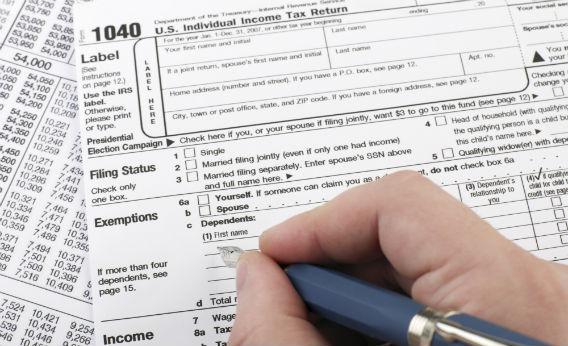While the Republican presidential candidates agree that the tax code is too long, they can’t seem to agree on just how long it is. Rick Perry says it’s 3 million words. Herman Cain used to describe the code as “an 8-million-word mess,” but now he says it’s 10 million words. How many words are really in the tax code?
In the neighborhood of 3 million. According to the IRS’s Taxpayer Advocate Service, the Internal Revenue Code had 3.8 million words as of Feb. 1, 2010. That count is a little high, because it includes cross-references, descriptions of amendments, and effective dates. A separate count done by data consultant Michael Bommarito and Michigan State Law Professor Daniel Katz came up with 2.6 million words, although their analysis didn’t include nonsubstantive words like is, and, or at. In fairness to Herman Cain, there’s far more to our tax system than the Internal Revenue Code. The code provides an outline of what Congress wants the IRS to do, but it’s the IRS regulations that put the outline into effect. There hasn’t been a recent count of the words in both the code and the regulations, but a 2005 analysis put the total at more than 9 million.
The expansion of the Internal Revenue Code is impressive, but it appears to be slowing. The tax code contained just 11,400 words in 1914, one year after the Constitution was amended to permit the federal government to levy an income tax. (There had been previous income taxes, but their legality was controversial.) By 1955, the code had ballooned to 409,000 words (PDF), an annual growth rate of 9.1 percent. As it grew from 409,000 words to 3.8 million between 1955 and 2010, the rate was just 4.1 percent per year.
Word counts are a pretty crude measure of the tax code’s level of complexity. The GOP candidates could cite a far more relevant number: The amount of time that individuals and businesses spend preparing and filing their taxes. According to the IRS’s Taxpayer Advocate Service, this amounts to 6.1 billion hours each year, not including audits. If you monetize total hours spent in tax preparation, the national cost of complying with our tax laws in 2008 was $163 billion, or 11 percent of total income tax receipts. Sixty percent of individuals hire tax professionals, while an additional 29 percent purchase software. The median taxpayer paid $258 to prepare her taxes in 2007.
The Internal Revenue Code isn’t the wordiest part of the United States Code by a long shot, according to the analysis by Bommarito and Katz. Title 42 of the Code (“The Public Health and Welfare”) holds that distinction with more than 7.4 million words. It’s a sprawling part of the law that includes provisions on clean air, juvenile justice, fair housing practices, and quarantine, among many other things. Title 16, concerning environmental conservation, also contains more words than the Internal Revenue Code.
Got a question about today’s news? Ask the Explainer.
Explainer thanks Leslie Bonacum of CCH Inc., Anthony Burke of the IRS and Richard Morrison of the Tax Foundation.
